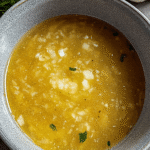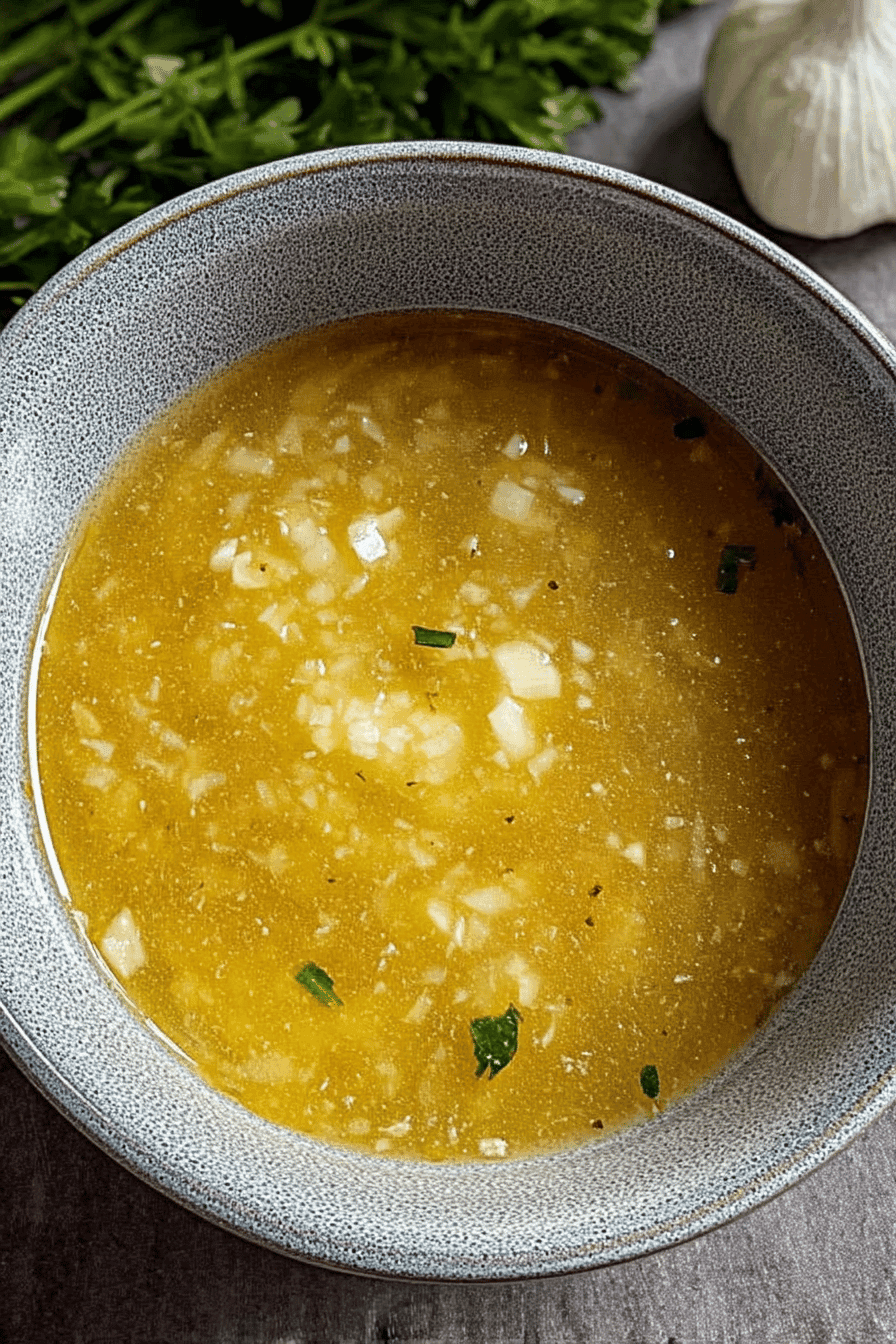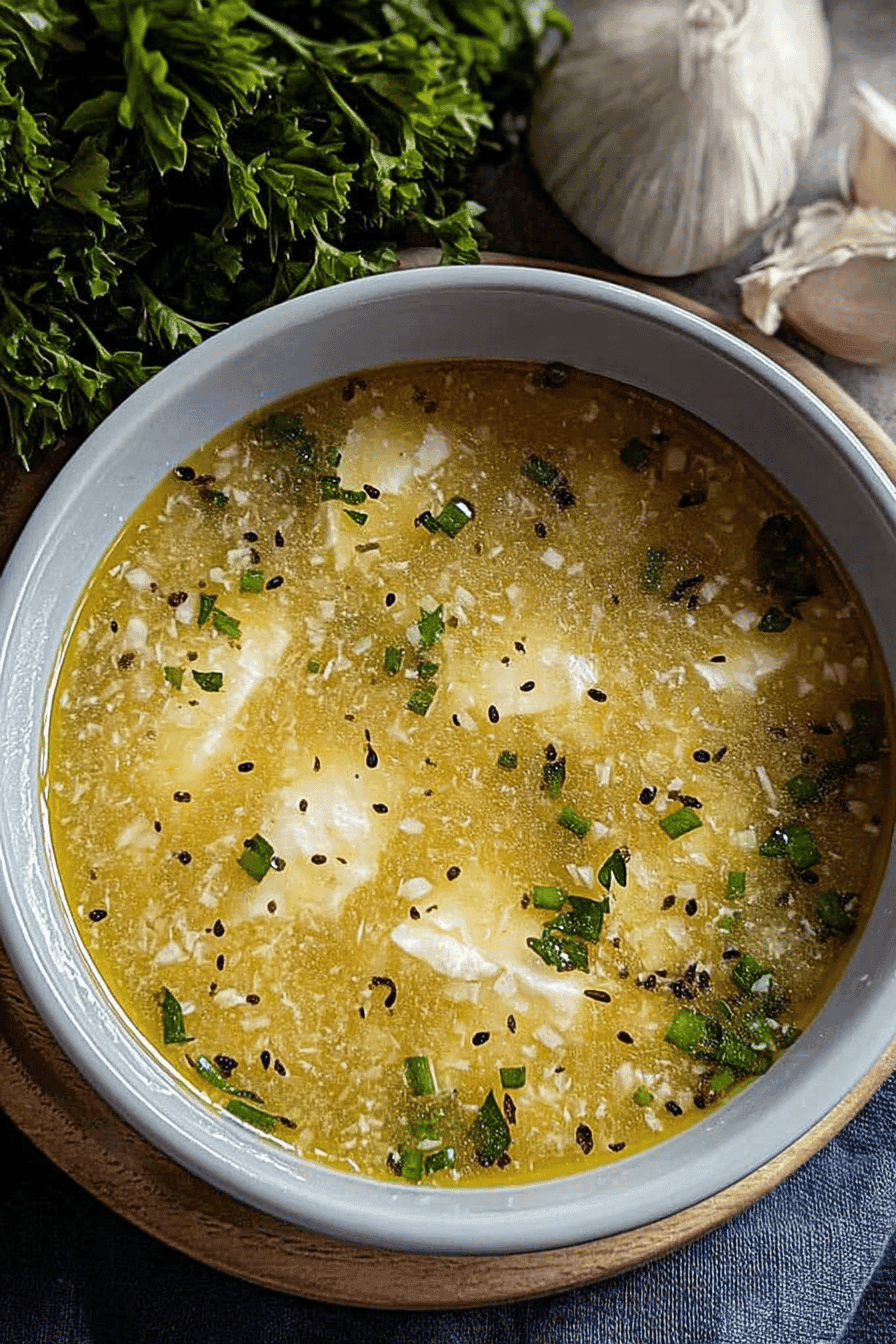Benefits and Advantages of mojo marinade
Mojo marinade is celebrated for its simplicity and bold flavor profile, combining bright citrus and pungent garlic to enhance a wide variety of dishes like pork, chicken, beef, seafood, and vegetables. Its preparation is quick and user-friendly, making it accessible to cooks of all skill levels. The marinade’s acidity from sour orange juice (or citrus substitute) naturally tenderizes proteins, resulting in tender, juicy meals without added heaviness. Additionally, the fresh herbs and garlic provide antioxidants that support digestion and immunity. Mojo’s versatility allows it to be employed as a marinade, sauce, or dressing, adding depth and freshness with every use. This balance of health benefits, practicality, and authentic Cuban flavor makes mojo marinade a trusted choice for infusing bold, zesty notes into your cooking.
Jump To
- 1. Benefits and Advantages of mojo marinade
- 2. Essential Ingredients for mojo marinade
- 3. Dietary Substitutions to Customize Your mojo marinade
- 4. How to Prepare the Perfect mojo marinade: Step-by-Step Guide
- 5. Advanced Tips and Variations
- 6. How to Store mojo marinade: Best Practices
- 7. Nutritional Value of mojo marinade
- 8. FAQs: Frequently Asked Questions About mojo marinade
- 9. mojo marinade
Essential Ingredients for mojo marinade
- 8 to 10 large garlic cloves, mashed into a smooth paste with about 1/2 teaspoon salt
- 1 1/2 cups sour orange juice, or substitute with 1 cup fresh navel orange juice, 1/4 cup fresh lemon juice, and 1/4 cup fresh lime juice
- 1/3 cup minced white onion (about 1/2 small onion, finely minced)
- 1 teaspoon dried oregano or 2 tablespoons fresh oregano
- 1/3 cup olive oil or any neutral oil (extra virgin olive oil preferred)
- Salt to taste, starting with 1/2 teaspoon
- Black pepper to taste, starting with 1/4 teaspoon
Optional: 2 teaspoons ground cumin, 1 teaspoon each of garlic powder and onion powder, 1 to 2 seeded and chopped jalapeños for mild heat, and fresh cilantro or parsley for brightness.
Dietary Substitutions to Customize Your mojo marinade
This classic mojo marinade easily adapts to dietary needs without sacrificing its authentic taste. Here are some practical substitutions:
- For Gluten-Free Diets: The recipe is naturally gluten-free, so no adjustments are needed.
- For Vegan Needs: The classic marinade contains no animal products, making it inherently vegan.
- To Reduce Calories: Replace olive oil with lighter oils such as avocado oil or light vegetable oils that retain healthy fats with fewer calories.
- Citrus Alternatives: Substitute lemons for limes if preferred, or use mild vinegars like apple cider vinegar to maintain tenderizing acidity.
- Herb Variations: Swap cilantro with parsley or omit oregano if desired to adjust flavor profiles or accommodate allergies.
- Spice Adjustments: Adjust or omit cumin and jalapeños based on heat tolerance and dietary restrictions.
How to Prepare the Perfect mojo marinade: Step-by-Step Guide
- Gather Ingredients: Include fresh garlic, citrus juices (sour orange or substitute), olive oil, minced onion, oregano, salt, and black pepper. Freshness is key for vibrant flavors.
- Make Garlic Paste: Using a mortar and pestle or finely minced by hand or food processor, mash garlic cloves with salt to create a fragrant paste.
- Mix Citrus Juices: Prepare sour orange juice or combine fresh navel orange juice, lemon juice, and lime juice for a substitute.
- Combine Ingredients: In a bowl or jar, add garlic paste, minced onion, oregano, oil, salt, pepper, and citrus juices.
- Emulsify: Whisk or shake vigorously until the mixture is smooth and well combined.
- Taste and Adjust: Modify salt, pepper, or optional spices like cumin to suit your preferences.
- Marinate: Pour over your choice of protein or vegetables ensuring even coverage. Refrigerate to marinate typically 2 to 4 hours or overnight for tougher cuts.
- Cook and Serve: Cook the marinated ingredients by grilling, roasting, or baking. Optionally, reduce leftover marinade over low heat to make a flavorful sauce.
This straightforward approach delivers a balanced and aromatic mojo marinade essential for authentic Cuban cuisine flavors.
For more tasty recipes and cooking inspiration, visit Marry Me Chicken Pasta and Roasted Garlic Cheddar Cauliflower Soup.
Discover expert advice on How to Make Mojo Marinade, Marinating Times for Different Meats, and the Benefits of Using Citrus in Marinades.
Advanced Tips and Variations
- Use fresh citrus juice: Fresh sour orange juice or the citrus blend substitute of orange, lemon, and lime juices offers the brightest flavor. Avoid bottled juices to keep the marinade vibrant.
- Marinate overnight: For tougher cuts like pork shoulder or beef flank, marinate up to 24 hours for deeper flavor and maximum tenderness.
- Add smoky notes: Incorporate smoked paprika or chipotle powder for a subtle smoky flavor that complements grilled meats.
- Adjust oil content: Reduce olive oil slightly to lower calories or substitute with avocado or a light vegetable oil to alter fat composition.
- Experiment with herbs: Fresh oregano, cilantro, or parsley can be swapped or combined to create regional variations of the classic mojo marinade.
- Shorter marinating times for seafood: Marinate delicate proteins like shrimp or scallops only 15 to 30 minutes to prevent acid from breaking down the flesh excessively.
- Cook leftover marinade: Simmer used marinade to create a rich sauce for drizzling over cooked meats, rice, or vegetables.
- Safety first: Always discard any marinade that has been in contact with raw meat to avoid bacterial contamination; store leftover unused marinade separately.
Applying these tips and variations can help you customize mojo marinade perfectly for different dishes and taste preferences.
How to Store mojo marinade: Best Practices
Proper storage of your mojo marinade ensures freshness, safety, and flavor retention:
- Refrigerate immediately: Transfer the marinade to an airtight container right after preparation. It can be safely stored in the fridge for up to 5 days.
- Freeze for long-term storage: Pour the marinade into ice cube trays to freeze. Once solid, transfer the cubes to a freezer-safe bag or container. This allows easy portioning and keeps the marinade fresh for up to 3 months.
- Avoid mixing used and fresh marinade: Do not reuse marinade that has been in contact with raw meat to prevent foodborne illness.
- Label and date containers: Always mark your storage containers with preparation dates to track freshness and avoid spoilage.
- Thaw gently: Thaw frozen marinade in the refrigerator or at room temperature, avoiding reheating at high heat to preserve its original zest.
Nutritional Value of mojo marinade
| Nutrient | Amount per Tablespoon | Health Benefit |
|---|---|---|
| Calories | 37 kcal | Low-calorie condiment for flavor enhancement |
| Carbohydrates | 2 g | Source of natural sugars from citrus |
| Protein | 0.2 g | Minimal protein content |
| Fat | 3 g (mostly healthy fats) | Provides heart-healthy monounsaturated fats |
| Sodium | 1 mg (variable with added salt) | Low and controllable sodium level |
| Vitamin C | 8 mg | Boosts immune function and antioxidant status |
| Vitamin A | 34 IU | Supports vision and skin health |
FAQs: Frequently Asked Questions About mojo marinade
What ingredients are traditionally used in mojo marinade?
Mojo marinade typically includes a combination of citrus juices like bitter orange or a blend of orange, lime, and lemon juice, olive oil, garlic, oregano, cumin, and fresh cilantro. Some versions also add jalapeno or other mild peppers for a subtle heat. This mix creates a bright, tangy, and slightly spicy flavor that tenderizes meat while adding freshness.
How long should I marinate different meats with mojo marinade?
Marinating times vary by protein: pork shoulder or tougher cuts need 4 to 24 hours, pork chops and chicken thighs benefit from 2 to 6 hours, steak usually requires 1 to 4 hours depending on cut, and seafood like shrimp or fish should be marinated only 10 to 30 minutes to prevent a mushy texture.
Can mojo marinade be used both as a marinade and a sauce?
Yes, mojo can be used as both a marinade and sauce. After marinating, the leftover mojo can be heated and reduced in a saucepan to thicken, turning it into a flavorful dipping sauce or a topping for grilled meats, rice, and vegetables.
What can I use as a substitute if I don’t have sour orange juice for mojo marinade?
If sour orange juice is unavailable, you can make a substitute by mixing 1 cup fresh orange juice with ½ cup fresh lemon juice and ½ cup fresh lime juice. This blend replicates the tangy citrus flavor essential to authentic mojo.
How should I store mojo marinade and how long does it keep?
Store mojo marinade in an airtight container in the refrigerator for up to one week. For longer storage, it can be frozen for up to three months. When freezing, use a freezer-safe container and thaw it in the refrigerator before use. Always discard any marinade that has come into contact with raw meat unless it’s boiled first.

mojo marinade
- Total Time: 10 minutes
- Yield: About 2 cups
- Diet: Gluten-Free, Dairy-Free
Description
🍋 Mojo Marinade brightens up pork, chicken, fish, and more with vibrant, fresh citrus and garlic flavors.
🌿 This versatile Cuban marinade enhances your dishes with authentic, tangy, and herbaceous notes for a delicious meal every time.
Ingredients
– 8 to 10 large garlic cloves, mashed into a smooth paste with about 1/2 teaspoon salt
– 1 1/2 cups sour orange juice, or substitute with 1 cup fresh navel orange juice, 1/4 cup fresh lemon juice, and 1/4 cup fresh lime juice
– 1/3 cup minced white onion (about 1/2 small onion, finely minced)
– 1 teaspoon dried oregano or 2 tablespoons fresh oregano
– 1/3 cup olive oil or any neutral oil (extra virgin olive oil preferred)
– Salt to taste, starting with 1/2 teaspoon
– Black pepper to taste, starting with 1/4 teaspoon
– 2 teaspoons ground cumin
– 1 teaspoon garlic powder
– 1 teaspoon onion powder
– 1 to 2 seeded and chopped jalapeños for mild heat
– Fresh cilantro or parsley for brightness
Instructions
Gather Ingredients: Include fresh garlic, citrus juices (sour orange or substitute), olive oil, minced onion, oregano, salt, and black pepper. Freshness is key for vibrant flavors.
Make Garlic Paste: Using a mortar and pestle or finely minced by hand or food processor, mash garlic cloves with salt to create a fragrant paste.
Mix Citrus Juices: Prepare sour orange juice or combine fresh navel orange juice, lemon juice, and lime juice for a substitute.
Combine Ingredients: In a bowl or jar, add garlic paste, minced onion, oregano, oil, salt, pepper, and citrus juices.
Emulsify: Whisk or shake vigorously until the mixture is smooth and well combined.
Taste and Adjust: Modify salt, pepper, or optional spices like cumin to suit your preferences.
Marinate: Pour over your choice of protein or vegetables ensuring even coverage. Refrigerate to marinate typically 2 to 4 hours or overnight for tougher cuts.
Cook and Serve: Cook the marinated ingredients by grilling, roasting, or baking. Optionally, reduce leftover marinade over low heat to make a flavorful sauce.
Notes
🧄 Use a mortar and pestle to make a smooth garlic paste for the best texture and flavor.
🥩 Adjust marinating times based on protein type to avoid over-marinating, especially for seafood.
🌶️ Customize the marinade by adding jalapeños or fresh herbs like cilantro for extra kick and brightness.
- Prep Time: 10 minutes
- Cook Time: 0 minutes
- Category: Sauce/Marinade
- Method: Mixing/Marinating
- Cuisine: Caribbean/Cuban
Nutrition
- Serving Size: 1 tablespoon
- Calories: 37 kcal
- Sugar: 1 g
- Sodium: 1 mg
- Fat: 3 g
- Saturated Fat: 0.2 g
- Unsaturated Fat: 3 g
- Trans Fat: 0 g
- Carbohydrates: 2 g
- Fiber: 0.1 g
- Protein: 0.2 g
- Cholesterol: 0 mg
Keywords: Mojo Marinade, Cuban Marinade, Citrus Marinade, Garlic Marinade



This mojo marinade was a hit at my family BBQ last weekend! 🥳 I swapped out the orange juice for pineapple juice for a little extra sweetness, and it turned out amazing. Thank you for sharing such a versatile marinade!
★★★★★